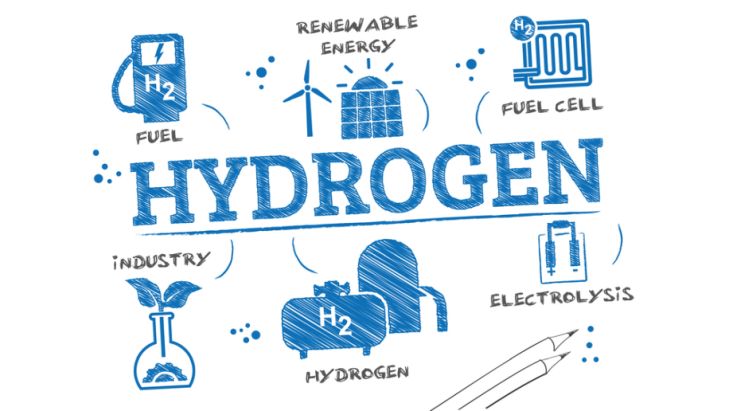Most of the public conversation on hydrogen is misplaced, suggests the latest report released by Energy Policy Group (EPG). The authors identify 10 myths, and plea for a pragmatic approach on the optimal use of hydrogen.
While clean hydrogen plays an important role in the European Union’s (EU) efforts of reducing greenhouse gas (GHG) and becoming climate neutral by 2050, “the public discourse is still flooded with faulty narratives on the future of hydrogen”. The first among them is “the doubtful expectation that hydrogen can either replace the use of natural gas in most current uses and it can therefore provide a lifeline for the continued use of fossil fuels throughout the following decades”.
-
Myths about hydrogen production
- Renewable hydrogen production will be expensive.
- Hydrogen produced from fossil fuels is more cost-competitive.
- Blue hydrogen will be a cost-effective alternative to renewable hydrogen.
-
Myths about hydrogen consumption
- Hydrogen will replace natural gas in the heating of individual households.
- Hydrogen is a competitive solution for decarbonising passenger transport.
- Hydrogen will replace current fossil fuel consumption in gas-fired power plants.
-
Myths about hydrogen transport
- Natural gas pipelines can be easily repurposed for hydrogen.
- Hydrogen can be immediately blended with natural gas in existing pipelines.
- Hydrogen can easily be transported over long distances.
- Replacing gas with hydrogen eliminates mid-stream emissions.
The myths aside, and the debates about them in the background, the EPG team is confident that “hydrogen will be an energy carrier most likely used in a limited set of high-value applications where few technological alternatives exist”. In their view, Romania could benefit from the opportunities of the clean hydrogen economy by “adopting a pragmatic approach on the optimal use of hydrogen”, based on principles like those below.
- Grounding the national strategic vision and specific legislation in objective, science-based analysis about the associated opportunities and risks;
- Aligning strategic national documents and legislation in terms of decarbonisation targets and hydrogen perspectives;
- Developing and mapping targeted funding opportunities for renewable hydrogen at national level;
- Training the necessary human resources;
- Adopting a strategic approach on imports and exports of hydrogen;
- Understanding the important role of hydrogen storage;
- Attracting investors in the manufacturing of hydrogen-related equipment.
The EPG report is useful for its evidence based approach for channeling and sanitizing the public discourse. It also includes some recommendations on all the three chapters: production, consumption and transportation of hydrogen.
Energy Policy Group (2024), The future of hydrogen in Romania: Dispelling myth from reality
Authors: Alina Arsani, Mihai Constantin, Radu Cîrligeanu, Mihnea Cătuți, Alexandru Ciocan
Energy Policy Group (EPG) is a non-profit, independent think-tank specializing in energy and climate policy. EPG does evidence-based policy analysis on the decarbonization of the energy, industry, buildings and transport sectors. Its geographical focus is mostly the European Union and Southeast Europe, yet its analyses are informed by the global market, technology, and geopolitical trends. EPG is based in Bucharest, Romania, where it was founded in 2014.
